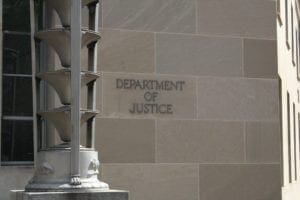DOJ’s Rule Risks Our Privacy, And It’s About to Become Law
This article was featured in our weekly newsletter, the Liberator Online. To receive it in your inbox, sign up here.
The Department of Justice’s proposed Rule 41, which would allow U.S. judges to provide law enforcement with search warrants for devices outside of the DOJ’s and its agencies’ jurisdiction, could soon become law, unless Congress does something.
 While Rule 41 could make Americans less safe, putting their privacy at risk, that is not the only issue with the proposed change to the law. According to Tech Dirt, Rule 41 could also turn millions of computer users across the world into criminals, simply because they use privacy tools to communicate with one another.
While Rule 41 could make Americans less safe, putting their privacy at risk, that is not the only issue with the proposed change to the law. According to Tech Dirt, Rule 41 could also turn millions of computer users across the world into criminals, simply because they use privacy tools to communicate with one another.
“From journalists communicating with sources to victims of domestic violence seeking information on legal services, people worldwide depend on privacy tools for both safety and security,” wrote the Electronic Frontier Foundation (EFF). But if the DOJ wins this battle, the reality is that the U.S. government will be given the power to access phones and computers remotely with little to no oversight.
By allowing law enforcement to seek warrants to computers or other devices equipped with privacy tools, many have argued, Rule 41 adds a presumption of guilt to an activity that is part of the daily lives of most innocent American technology users.
In order to make sure the DOJ is not successful in its battle against privacy, several congressmen and senators from both political parties sent a letter to the DOJ asking for clarification on how the agency seeks to interpret the proposed changes to the law.
According to EFF, if Rule 41 becomes law, “anyone who is using any technological means to safeguard their location privacy could find themselves suddenly in the jurisdiction of a prosecutor-friendly or technically-naïve judge, anywhere in the country.” In their letter to the DOJ, Senators Ron Wyden (D-OR), Mike Lee (R-UT), Rep. Justin Amash (R-MI), and several others argue that Rule 41 would give law enforcement the power to hack into any device, expanding the scope of the DOJ’s authority, and risking our safety and privacy as a result.
Tech Dirt argues that while the DOJ claims that Rule 41 would not interfere with current laws, which already establish the need to demonstrate probable cause before the warrant is produced, judges have already been caught signing on warrants that exceeded existing jurisdiction limits.
Claiming that Rule 41 would keep those safeguards in place, Tech Dirt adds, is simply dishonest.
Unless Congress acts fast, Rule 41 will become the law by December 31st. Unfortunately for privacy, all the media seems to be talking about is the presidential election. Is anyone even paying attention?

























